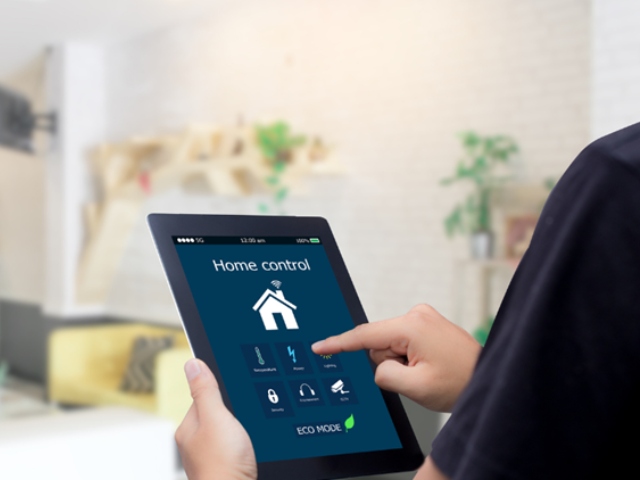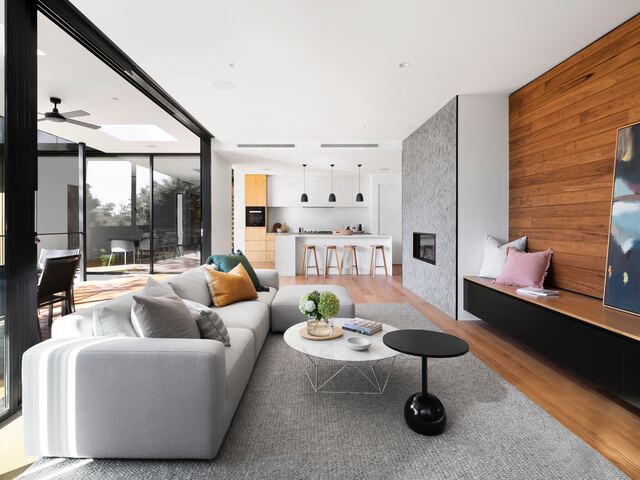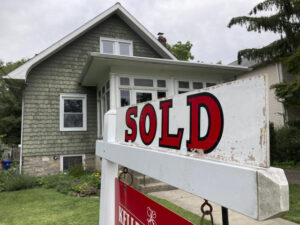Latest Trends in Real Estate Tech

In recent years, smart home technology has moved from the fringes of tech enthusiasts’ hobbies into the mainstream, becoming a significant factor in real estate decisions. As we progress through 2024, the integration of smart home tech is not only enhancing the way we live but also reshaping the real estate market. Let’s delve into the latest trends in smart home integration and how they’re impacting the real estate landscape.
1. Enhanced Security Systems
Security remains a top priority for homeowners, and smart home technology is revolutionizing how we secure our spaces. Traditional security systems, while effective, often lacked the flexibility and real-time features of their smart counterparts. Today’s smart security systems offer integrated solutions that include high-definition cameras, motion sensors, doorbell cameras, and smart locks. These systems can be monitored and controlled remotely via smartphone apps, providing homeowners with instant notifications and the ability to take immediate action from anywhere. Visit their page if you need more information or have any questions about DIY virtual staging software.
Recent advancements in AI have further enhanced these systems, allowing for facial recognition, anomaly detection, and even predictive alerts based on patterns of behavior. For real estate buyers, these sophisticated security features are highly attractive, adding a layer of convenience and peace of mind that traditional systems struggle to match.
2. Energy Efficiency and Sustainability
Sustainability is no longer just a buzzword; it’s a key consideration for many homebuyers and investors. Smart home technology plays a pivotal role in achieving energy efficiency and reducing carbon footprints. Thermostats, such as those from Nest and Ecobee, learn from user behavior to optimize heating and cooling, reducing unnecessary energy consumption. Smart lighting systems, like Philips Hue, adjust based on natural light levels and occupancy, further contributing to energy savings.
Moreover, advancements in smart appliances, such as refrigerators that monitor food freshness and dishwashers that optimize water usage, are driving home efficiency to new levels. The integration of these technologies in new builds or renovations can significantly impact property value, as more buyers are looking for homes that align with their sustainability goals.
3. Home Automation and Convenience
Home automation is a game-changer for modern living, bringing a new level of convenience and control. Smart hubs like Amazon Echo, Google Nest Hub, and Apple HomePod serve as central control points for various smart devices, enabling users to manage lighting, climate, entertainment systems, and more with voice commands or through a unified app.
Recent trends show a growing interest in automating routine tasks. For instance, smart sprinklers can adjust watering schedules based on weather forecasts, while smart blinds can open or close based on the time of day or the position of the sun. These systems not only enhance convenience but also offer energy savings and improved home management.
4. Health and Wellness Integration
The focus on health and wellness has become increasingly prominent, and smart home technology is stepping up to meet these needs. Smart air purifiers, such as those from Dyson and Molekule, monitor air quality and adjust their filtration processes to ensure a healthier indoor environment. Similarly, smart lighting systems that mimic natural daylight patterns can improve sleep quality and overall well-being.
Moreover, smart home gyms are gaining traction, with devices that offer personalized workout plans and track fitness progress becoming more common. These innovations cater to a growing market of health-conscious buyers and underscore the role of smart technology in promoting a healthier lifestyle.
5. Home Networking and Connectivity
As smart home devices become more prevalent, robust home networking solutions are crucial. The rise of smart home integration has led to an increased demand for high-speed, reliable Wi-Fi networks. Mesh networking systems, such as those from Eero and Google Nest, provide comprehensive coverage and eliminate dead zones, ensuring that all smart devices function seamlessly throughout the home.
Additionally, the push towards Wi-Fi 6 and upcoming Wi-Fi 7 technologies promises faster speeds and improved efficiency, supporting the growing number of connected devices. For real estate developers and buyers, strong networking capabilities are now a must-have, as they directly impact the performance of smart home systems.

6. Integration with Real Estate Marketing
Smart home technology is not just about enhancing the living experience; it’s also transforming real estate marketing strategies. Virtual tours and 3D walkthroughs have become standard, but now, tech-savvy real estate agents are integrating smart home features into their presentations. For instance, showcasing a smart security system’s live feed or demonstrating a home automation system’s capabilities can be powerful selling points.
Moreover, smart home data analytics can provide insights into home usage patterns, which can be leveraged to highlight efficiency and cost-saving benefits. As smart technology continues to evolve, its integration into real estate marketing will likely become more sophisticated, offering potential buyers a glimpse into the future of home living.
7. Challenges and Considerations
Despite the numerous benefits, smart home integration does come with its challenges. Compatibility between different devices and platforms can be an issue, and there is also the concern of cybersecurity. Homeowners need to ensure their smart devices are secured against potential threats and understand how to manage their privacy settings.
For real estate professionals, staying abreast of the latest technology and ensuring that installations are done correctly can be demanding. Additionally, there’s a need to educate buyers about the benefits and limitations of smart home technology to help them make informed decisions.
Conclusion
Smart home integration is more than just a trend; it’s shaping the future of real estate. With advancements in security, energy efficiency, automation, health, and connectivity, smart technology is enhancing the way we live and work. For both buyers and real estate professionals, understanding and embracing these technologies can provide a competitive edge in an increasingly tech-driven market.
As we continue to explore and develop new smart home innovations, the intersection of real estate and technology will undoubtedly evolve, bringing even more exciting possibilities for enhancing our living spaces.



